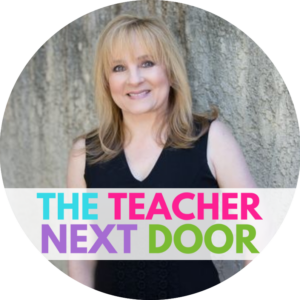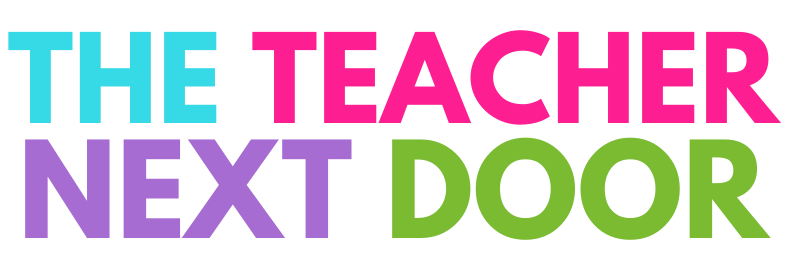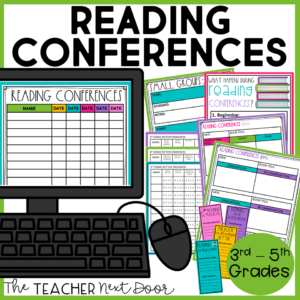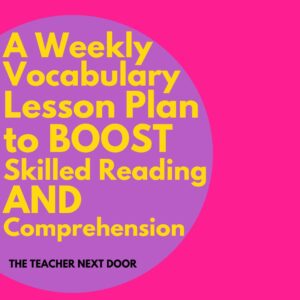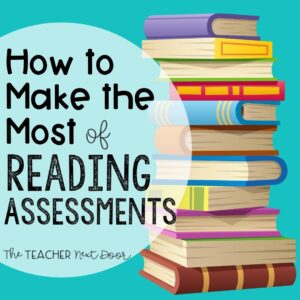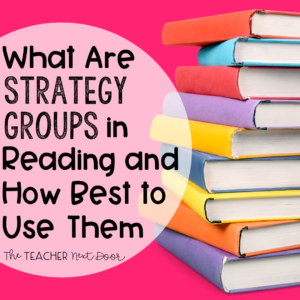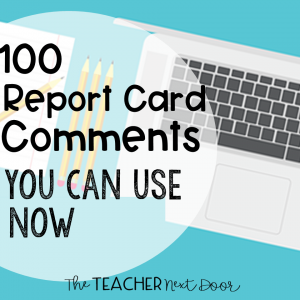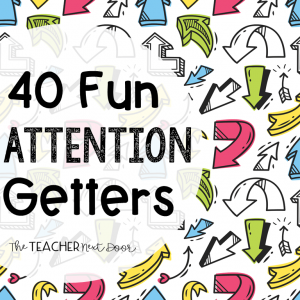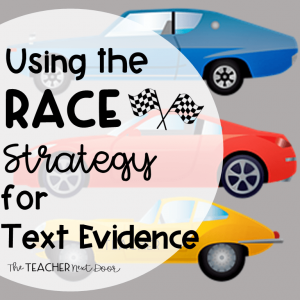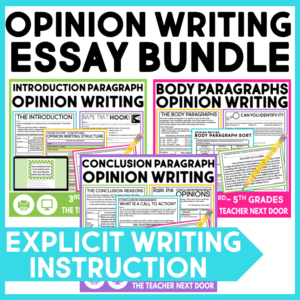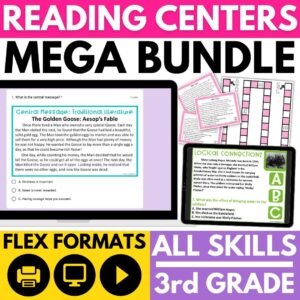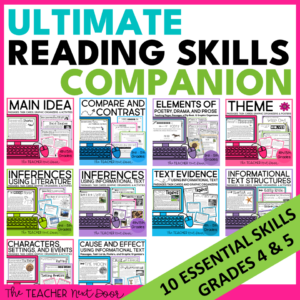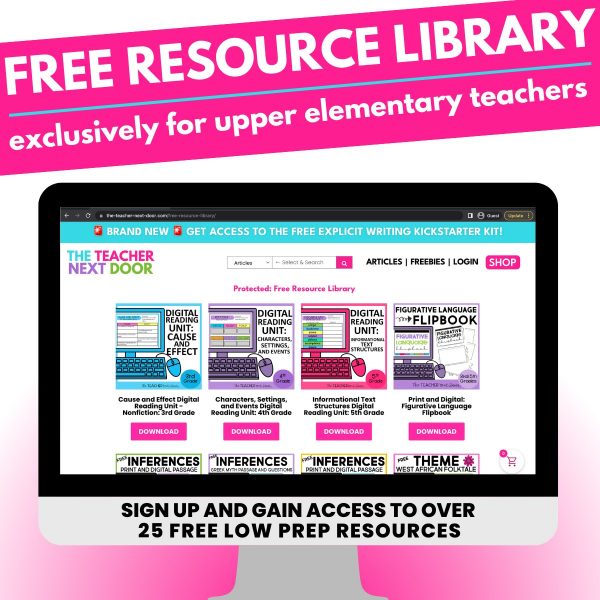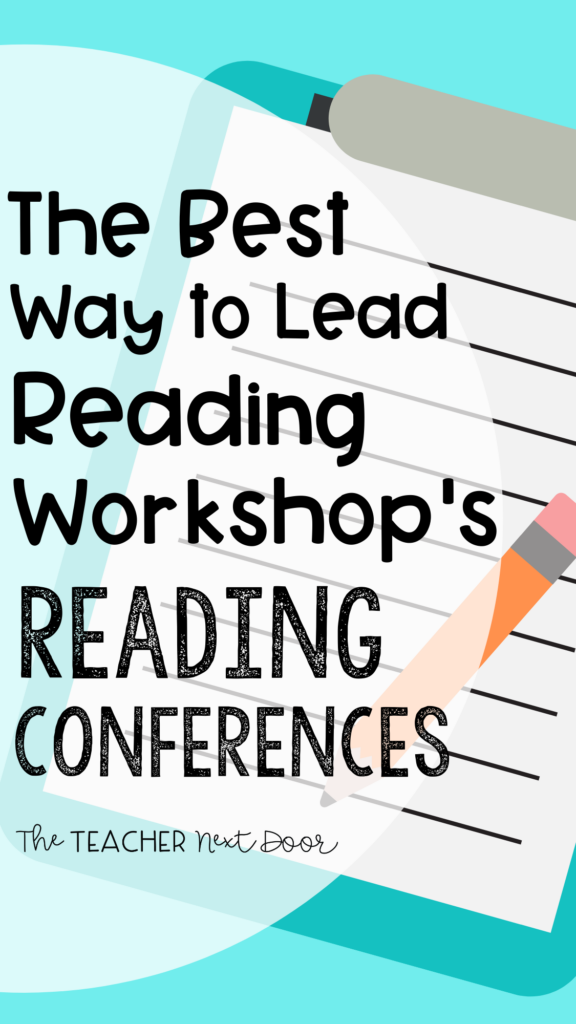
One of the most challenging parts of the Reading Workshop model for most teachers is holding Reading Conferences.
After all, leading a Reading Conference is more of an art than a science.
Sure, you may know reading strategies and grade level skills, but reading conferences may seem, well, a little scary at first.
Lots of teachers feel this way too. In fact they may be thinking:
- How can I accomplish anything in a reading conference with such a little amount of time?
- How will I know which reading strategy to suggest?
- What if I don’t know exactly which question to ask?
- Why does it seem so mysterious and hard?
That’s exactly how I felt when I first started using Reading Workshop in my classroom.
I’ll just be honest here and tell you that my first attempts were not principal observation worthy (at all).
It takes time and lots of practice to become a master at reading conferences, but if you are willing to give it a try and take the leap (just. do. it), I promise you, it WILL get much easier.
Soon you’ll almost forget how hard it used to be!
Let’s dive into conferring with students in detail!
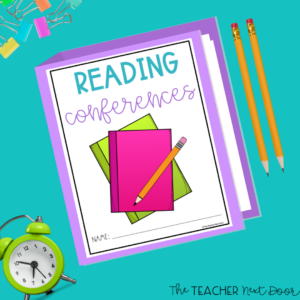
What do you do to prepare for reading conferences?
First, you’ll want to make sure that your students have a solid Independent Reading time during Reading Workshop, since this is when you’ll hold Reading Conferences.
You’ll need to directly teach students routines and expectations for independent reading and for reading conference times.
Students will need to know EXACTLY what they should and shouldn’t be doing (like not interrupting your reading conference unless it’s a “true emergency”) before you’re able to pull students to give them individualized instruction.
Once you start holding Reading Conferences (maybe around the 3rd – 4th week of Reading Workshop), you’ll want to make a schedule of which students you’ll meet on which dates.
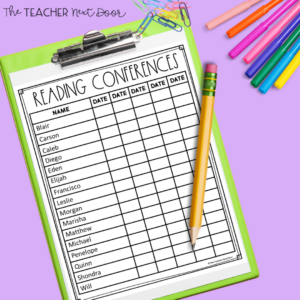
Keep in mind that you’ll need to be flexible since things like a student’s absence, an assembly, or other unexpected events may put a kink in your plans.
It’s important to meet with each student regularly, but you may meet with struggling students more often than strong, independent readers.
I generally meet with 3 – 4 students each day for about 5 – 7 minutes each. You can also meet with small groups or strategy groups if you’d like.
What happens in a reading conference?
1. Check-in With Your Student as a Reader
After a quick greeting, you’ll want to see if the student has been working on what you discussed at the last conference.
You can also take a very quick look at his/her Reader’s Notebook as part of the check-in.
You might say something like:
So, I see that you’re reading ______. What have you been working on since the last time we met?
I’d love to hear about what you’ve been thinking as a reader since our last conversation.
When we chatted about your reading, you told me that you were going to try ___________. How is that going?
2. Student Reads Aloud
I usually have students read right where they left off, so we don’t spend time searching for a passage to read (unless he/she has a specific place ready to read).
Have the student read briefly (about a minute) and take notes about what you notice (word attack skills, fluency, expression…)
You might start by saying something like:
Could you whisper read the next ______ (paragraph/page) to me, wherever you left off?
I’d love to hear you read a short part of the text for me.
Is there a short part you enjoyed or a part that was confusing to you that you could read to me? After you read it to me, we can chat about it.
3. Compliment the Positive
This is a time to find something genuine to praise about his/her reading.
Encouragement can set the tone for a positive reading conference which is what we want.
It might sound like this:
One thing that I noticed that you’re doing so well is ___________.
As you were reading, I noticed that you __________, which is such a helpful strategy to use.
I loved seeing that you are ______. That’s such a great strategy for _____!
4. Discuss the Text
The idea is to ask a few questions to see what strategies the reader is using and to try to strengthen those areas of reading strategy difficulties.
You could start by saying something like:
So, tell me what’s going on in this part of the text?
Did you make any connections with this section?
What are you thinking about your reading today?
5. Teach One Strategy in Each Reading Conference
This is the meat and potatoes of the conference. This is the moment to teach a quick reading strategy or tip from one reader to another.
With certain students, you may have seen ten things that need to be improved, but reading conference times thrive on targeting ONE single area of need.
Ask yourself, what does this student need that will help his/her reading the MOST?
Regardless of what reading standard the whole class is working on at the time, I look at this one student and think how can I help him/her the very most? No pressure, right?
Here are some ways you might start this quick teaching moment:
One thing that I think could really help you is to_________. Let me show you what this looks like…
I noticed as you were reading that ________. Something that you can do is ___________. Watch me, and I’ll show you what I mean…
When you came to the word ______, I noticed that you hesitated. I want to show you what I do as a reader to figure out words I don’t know…
Let’s talk about ______. I want to share something that might help you…
It seems like you can really _________ but are having a little difficulty with ______. Let me show you how _________ can help…
I wanted to share a tip that I think you could use every day as one of your reading tools. When you _____, you’ll want to make sure to _____.
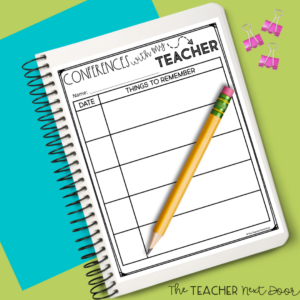
6. Plans to Move Forward – Ending the Conference
Every time a Reading Conference is ending, you want to send the reader off with a job to do.
It might be a simple reminder or something very specific that he/she needs to do.
You might say something like:
Don’t forget to really focus on ________ whenever you’re reading…
What would happen if you ______? Give it a try each day, and we’ll chat about it the next time we meet…
From now on, I’d really like to see you_______ as you read…
Make sure to try to _________ every time you’re reading…
Between now and the next time we meet, I’d like you to…
The next time we meet, I’d love to hear how _______ has worked for you…
Sometimes I give students a bookmark where I write down one great thing that I noticed about their reading and one thing to work on.
Other times, I simply ask them to record our Reading Conference in their Reader’s Notebook on the “Conferences with My Teacher” form.
What does the teacher do after conferring with each student?
Ideally, you’ll be able to take a few notes during the reading conference.
After the conference is over, you’ll definitely want to make sure to write a few quick notes about what was discussed at the reading conference and anything you noticed or any insight you have into the student as a reader.
If you start to notice that the great majority of your students are struggling with the same reading strategy or skill, it’s a good idea to teach a few mini-lessons on that reading strategy to the whole class.
If you’re noticing that several students are working on a similar issue, regardless of their individual reading abilities, you might decide to gather those 3 – 5 students and do a strategy group with them.
Strategy groups may meet from 1 – 3 times or so to try to help these students master a reading skill or increase their reading comprehension in some way.
That’s it! Now you know how to plan and implement a successful Reading Conference!
Do remember that like everything, becoming an expert at teaching Reading Workshop (and reading conferences in particular) takes a good amount of time, patience, and practice.
The more you practice reading conferences with your students, the more confident and skilled you’ll become! You can do this!!!
If you’re ready to dive into Reading Workshop, you can create everything you need, but if you’re looking for a ready-made set of print and digital resources, I have a resource ready for you.
It has everything you need to plan and organize reading conferences for the entire year!
Click here to take a look at the Reading Conferences unit!
Now that you have a handle on how to run reading conferences, maybe you’re wondering about how to plan for Reading Workshop?
If you’d like to plan out the grade level reading skills and mini-lessons your students need for the year, I have a FREE set of pacing guides for 3rd, 4th, and 5th grades that I’d love to share with you.
The pacing guides are organized by weeks and come in color, black and white, and in editable formats too, so you can tweak them to match your needs.
IF YOU LIKED THIS BLOG, YOU MAY ALSO BE INTERESTED IN:
